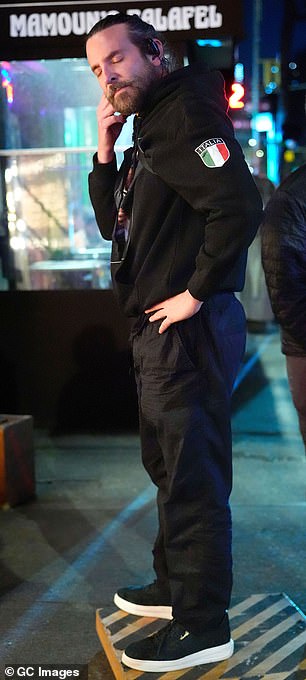Is The Count Of Monte Cristo Still Relevant? A Modern Review

Table of Contents
Themes of Revenge and Justice in a Modern Context
The timeless appeal of revenge narratives is undeniable. From ancient myths to modern thrillers, the desire for retribution speaks to a fundamental human emotion. The Count of Monte Cristo masterfully explores this theme, showcasing Edmond Dantes's journey from wrongly imprisoned innocent to cunning avenger. However, the novel isn't simply a glorification of revenge; it delves into the ethical complexities and devastating consequences that can arise from it. The novel's exploration of justice, or rather, the lack thereof, remains deeply resonant today.
- Modern-Day Parallels: Edmond Dantes's wrongful imprisonment and subsequent quest for vengeance find echoes in countless modern instances of injustice, from wrongful convictions to systemic corruption that leaves victims with little recourse. Consider the ongoing fight for social justice, where individuals and communities seek redress for historical and present-day wrongs.
- Ethical Dilemmas: The novel forces us to confront the ethical dilemmas surrounding revenge. Is it ever justifiable? What are the long-term consequences, both for the avenger and those around them? Dumas's exploration of these questions remains incredibly relevant in a world grappling with moral ambiguity.
- Justice Systems Then and Now: Comparing the novel's depiction of the French judicial system in the early 19th century to contemporary legal systems highlights both the progress made and the persistent challenges in achieving true justice. While legal frameworks have evolved, biases and systemic issues continue to undermine the pursuit of fairness.
The Count of Monte Cristo's Enduring Characters
The characters of The Count of Monte Cristo are complex and multi-faceted, possessing a depth that resonates with modern audiences. They are not simply good or evil, but nuanced individuals driven by motivations we can understand, even if we don't always condone their actions.
- Edmond Dantes: A Study in Resilience: Edmond Dantes is more than just a vengeful antihero. He is a symbol of resilience, demonstrating the remarkable capacity of the human spirit to endure hardship and emerge transformed. His journey showcases both his capacity for good and the darkness that can consume even the most virtuous when betrayed.
- Villainous Masterminds: The novel's villains—Danglars, Fernand Mondego, and Villefort—are not simply one-dimensional antagonists. Their motivations, though reprehensible, are rooted in human desires for power, wealth, and social status, making them chillingly relatable. Their lasting impact serves as a cautionary tale about the corrupting influence of ambition.
- Relationships and Betrayal: The exploration of love, betrayal, and friendship forms a significant part of the narrative. The complexities of these relationships add another layer to the story, making it more than just a tale of revenge.
The Count of Monte Cristo and its Sociopolitical Commentary
The Count of Monte Cristo is not merely an adventure story; it's a potent commentary on societal structures, class inequality, corruption, and political power. These themes, far from being outdated, remain central to many of the world's challenges today.
- Societal Structures and Inequality: Dumas vividly portrays the societal hierarchies and inequalities of 19th-century France. The stark contrasts between the wealthy elite and the impoverished masses still resonate in our own time, highlighting the persistence of class divisions and the struggle for social mobility.
- Corruption and Political Power: The novel's depiction of political corruption and abuse of power mirrors contemporary concerns about governmental transparency, accountability, and the influence of money in politics. The manipulative tactics employed by the novel's antagonists remain disturbingly relevant.
- Power Dynamics: The enduring relevance of The Count of Monte Cristo lies, in part, in its exploration of power dynamics. The novel shows how power can corrupt, and how the pursuit of power can lead to devastating consequences for individuals and society as a whole.
Adaptations and Interpretations of The Count of Monte Cristo
The enduring popularity of The Count of Monte Cristo is evident in its numerous adaptations across various media, including film, television, and even video games. These adaptations reflect changing cultural perspectives and societal concerns, showcasing the novel's versatility and adaptability.
- Notable Adaptations: From classic film versions to contemporary interpretations, the novel's story has been retold countless times, each adaptation offering a unique perspective on the themes and characters.
- Reinterpretations and Themes: Modern adaptations often reinterpret the themes of the novel to reflect contemporary issues and anxieties. Some emphasize the ethical dilemmas of revenge, while others focus on the social and political critiques.
- Success and Reception: The continued success of these adaptations demonstrates the enduring appeal of the novel's story and characters, proving that The Count of Monte Cristo transcends its historical context.
Conclusion: Is The Count of Monte Cristo Still Relevant? A Verdict
In conclusion, the arguments presented throughout this article strongly support the continued relevance of The Count of Monte Cristo. Its timeless themes of revenge, justice, social inequality, and the corrupting influence of power resonate deeply with modern audiences. The novel’s enduring popularity, evident in its countless adaptations, further reinforces its impact. The answer to the question posed initially is a resounding yes. The Count of Monte Cristo continues to offer insightful commentary on the human condition and the complexities of our world.
Rediscover the timeless power of The Count of Monte Cristo and experience its enduring relevance for yourself. Engage in a discussion about the novel's themes in the comments below! Explore different adaptations of the Count of Monte Cristo and discover its lasting influence on modern storytelling.

Featured Posts
-
 Sydney Sweeneys Karaoke Breakup Anthem Following Davino Split
May 04, 2025
Sydney Sweeneys Karaoke Breakup Anthem Following Davino Split
May 04, 2025 -
 Bakole Vs Ajagba Heavyweight Showdown Joins Canelo Alvarezs May 3rd Card
May 04, 2025
Bakole Vs Ajagba Heavyweight Showdown Joins Canelo Alvarezs May 3rd Card
May 04, 2025 -
 Berlangas Fight Choices Edwards Highlights A Money Driven Approach Sidestepping Plant Focusing On Munguia
May 04, 2025
Berlangas Fight Choices Edwards Highlights A Money Driven Approach Sidestepping Plant Focusing On Munguia
May 04, 2025 -
 Vegas Golden Knights Stanley Cup Playoff Predictions And Analysis
May 04, 2025
Vegas Golden Knights Stanley Cup Playoff Predictions And Analysis
May 04, 2025 -
 The Kevin Holland Story A Look At His Meteoric Rise And Subsequent Struggle
May 04, 2025
The Kevin Holland Story A Look At His Meteoric Rise And Subsequent Struggle
May 04, 2025
Latest Posts
-
 Exclusive Photos Bradley Cooper Directs Will Arnett In New York City
May 04, 2025
Exclusive Photos Bradley Cooper Directs Will Arnett In New York City
May 04, 2025 -
 Nyc Filming Bradley Cooper And Will Arnett Spotted On Set Of Is This Thing On
May 04, 2025
Nyc Filming Bradley Cooper And Will Arnett Spotted On Set Of Is This Thing On
May 04, 2025 -
 New Details Emerge Gigi Hadid Talks About Bradley Cooper
May 04, 2025
New Details Emerge Gigi Hadid Talks About Bradley Cooper
May 04, 2025 -
 Novoe Intervyu Dzhidzhi Khadid Otnosheniya S Kuperom
May 04, 2025
Novoe Intervyu Dzhidzhi Khadid Otnosheniya S Kuperom
May 04, 2025 -
 Is This Thing On A Look At Bradley Coopers Directorial Work With Will Arnett
May 04, 2025
Is This Thing On A Look At Bradley Coopers Directorial Work With Will Arnett
May 04, 2025
